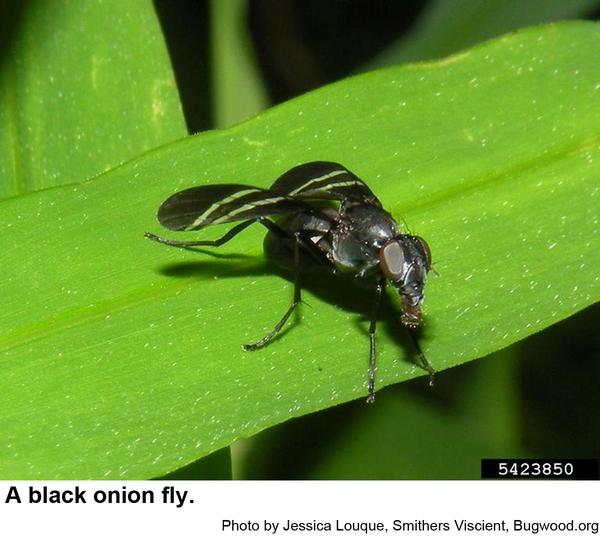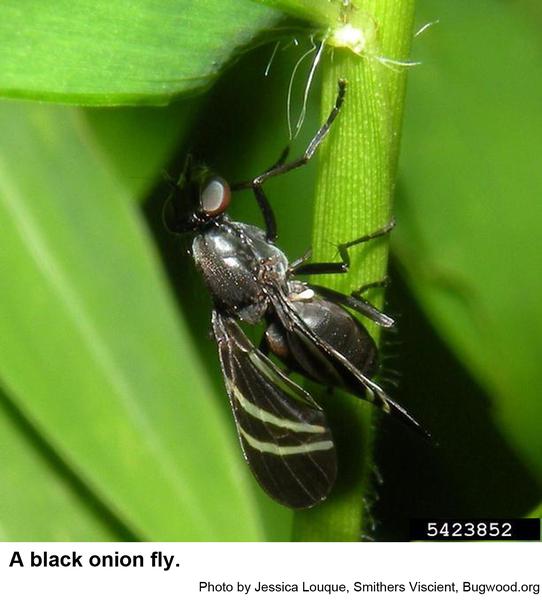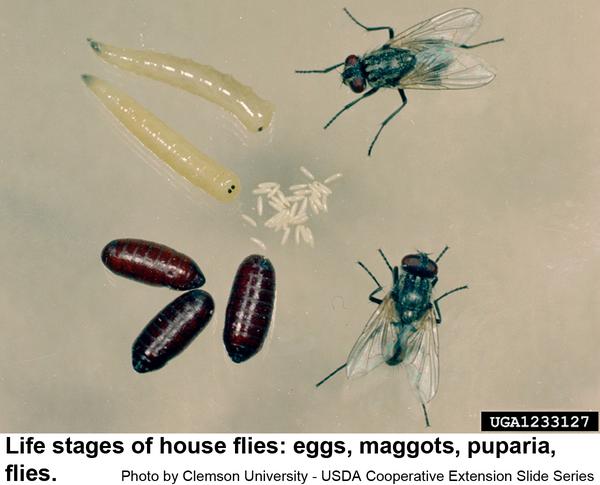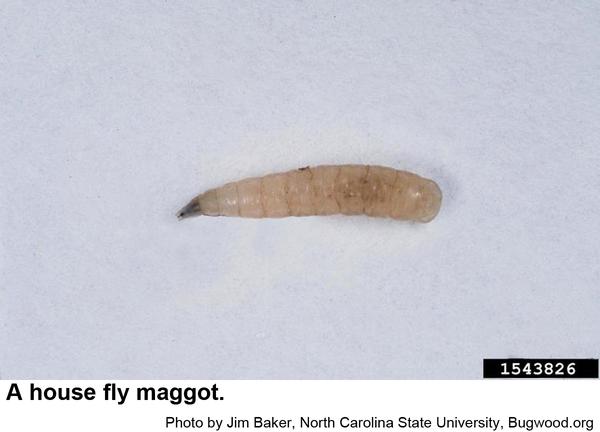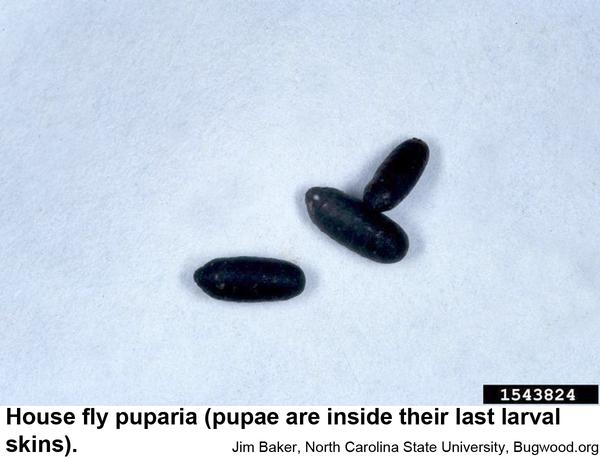Description and Biology
The black onion fly, Tritoxa flexa, is a medium-sized (1/4 to 3/8 inch), black, picture-winged fly. The wings are dark and have three white cross bands that resemble your average Rorschach ink blot test but on a much smaller scale. The inner band is small and straight. Black onion flies are found in landscapes, fields, and meadows. Most of the flies in this family breed in decaying organic matter such as decaying bulbs, tubers and roots and in rot pockets on stems of cacti and accumulations of decomposing vegetation whereas the black onion fly breeds in onions and very closely related plants and is even a minor pest of commercial onions. The maggots of the black onion fly resemble house fly maggots and can be separated from other species only by host data and microscopic characters. Females lay tiny, narrow, cylindrical eggs singly or in groups under a leaf sheath, and their maggots feed on the bulb. Third stage maggots overwinter within the infested bulb. Next spring they pupate in the soil around the base of the infested bulb. Adults emerge 5 to 17 days later. Based on specimens in the NC State University Insect Collection, adults have been collected in May, July and September in North Carolina. Maggots have been collected in February, March, April and August. We have at least three generations of black onion flies each year. This means ornamental Allium might be infested almost anytime during the growing season.
Host Plants
Onions, garlic, and other members of Allium (including ornamental Allium) are the only host plants listed for the black onion fly. Adults probably sip flower nectar.
Residential Recommendations
By the time black onion fly maggots are found damaging an ornamental Allium, it is too late to "save" that plant. To protect the rest of the plants in that bed and in future plantings, foliage can be sprayed with a pyrethroid insecticide to repell the adults before they lay eggs. When used as directed, pyrethroids are very toxic to insects but are not particularly hazardous to humans and pets (other than fish—avoid using pyrethroids around pools, ponds, and streams). If a few plants in a bed are infested, the bed can be drenched with imidacloprid, a systemic nicotinoid sold in the gardening section of big box stores, plant centers, and nurseries. The active ingredient of any pesticide is listed on the front label usually in very small font near the bottom. All pyrethroid active ingredients end in "-thrin." Pyrethrum, an extract of the pyrethrum daisy is repellent and toxic to flies, but pyrethrum has a very short residual life once it is applied. Follow the directions for safe use also found on the label.
Other Resources
- Black Onion Fly. Neal, J. 2010. Living With Insects Blog.
- Black onion fly, (Tritoxa flexa). Anonymous. 2025 (update). Minnesota Seasons.com
- NC State Extension Plant Pathology Publications
- NC State Horticultural Science Publications
- North Carolina Agricultural Chemicals Manual
For assistance with a specific problem, contact your local Cooperative Extension center.
This factsheet has not been peer reviewed.
Publication date: July 14, 2020
Reviewed/Revised: May 8, 2025
Recommendations for the use of agricultural chemicals are included in this publication as a convenience to the reader. The use of brand names and any mention or listing of commercial products or services in this publication does not imply endorsement by NC State University or N.C. A&T State University nor discrimination against similar products or services not mentioned. Individuals who use agricultural chemicals are responsible for ensuring that the intended use complies with current regulations and conforms to the product label. Be sure to obtain current information about usage regulations and examine a current product label before applying any chemical. For assistance, contact your local N.C. Cooperative Extension county center.
N.C. Cooperative Extension prohibits discrimination and harassment regardless of age, color, disability, family and marital status, gender identity, national origin, political beliefs, race, religion, sex (including pregnancy), sexual orientation and veteran status.

